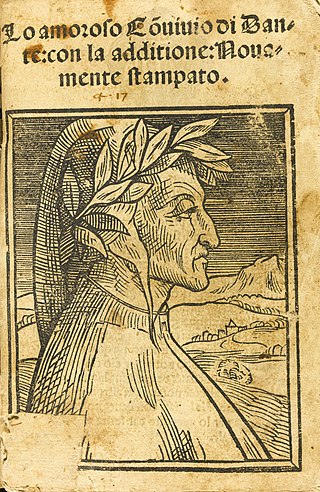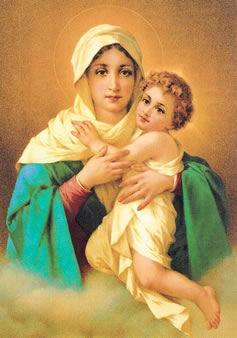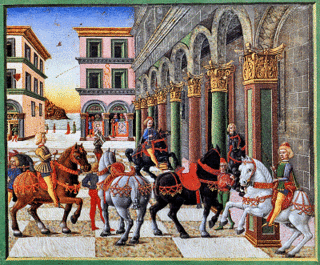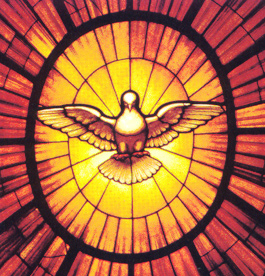
Il Corbaccio, or "The Crow", is an Italian literary work by Giovanni Boccaccio, traditionally dated c. 1355. [1]

Il Corbaccio, or "The Crow", is an Italian literary work by Giovanni Boccaccio, traditionally dated c. 1355. [1]
The work is narrated in the first person and opens with a justification (it is not a real prologue) in which the author declares that he wishes his narrative to be a consolation to those who read it, such as he found thanks to God and the intercession of Our Lady.
The protagonist, desperate because of the unreturned love of a widow, calls on Death, falls asleep and dreams. In his dream appears a man who declares himself to be the deceased husband of the widow, who says he has come, sent by God and through the intercession of Our Lady, to free him from the labyrinth of love into which he has fallen.
The protagonist tells the story of his love to the spirit, who warns him against women who, with their lust, endanger men.
The spirit then begins to tell him of his own experiences with the woman, drawing attention to all of her shortcomings. After hearing the story told by the spirit, the protagonist declares himself convinced and says that he wants to remedy his mistake. The spirit therefore invites him to revenge himself by using his skills as a writer to "unmask" the true nature of women. Still in the dream, the protagonist promises to do so and when he wakes up, in his room he finds himself healed of his troubles. The author concludes his work by warning the young against "female wickedness".
Boccaccio is most famous as the author of The Decameron (completed c. 1351–2), another work of ambiguous interpretation regarding the dolce stil novo and the antifeminist counter argument. Regarding Il Corbaccio, whether the novel's theme of misogyny is a detailed study of the attitude or a direct misogynistic expression of the author has long been a subject of debate. [2]
Scholars who consider the text to be autobiographical base their interpretation on connecting aspects of the text to events in the author's life. The opposing view accepts the author's own reference to the work as a "trattato", or a philosophical treatment. As stated by scholar Anthony K. Cassell, "the formal elements of the treatise are part of a wide artistic tradition and contest autobiographical intention and interpretation". [1] The work is regarded by some scholars as late medieval in character, others as early renaissance.

Dante Alighieri, most likely baptized Durante di Alighiero degli Alighieri and often referred to as Dante, was an Italian poet, writer and philosopher. His Divine Comedy, originally called Comedìa and later christened Divina by Giovanni Boccaccio, is widely considered one of the most important poems of the Middle Ages and the greatest literary work in the Italian language.

Giovanni Boccaccio was an Italian writer, poet, correspondent of Petrarch, and an important Renaissance humanist. Born in the town of Certaldo, he became so well known as a writer that he was sometimes simply known as "the Certaldese" and one of the most important figures in the European literary panorama of the fourteenth century. Some scholars define him as the greatest European prose writer of his time, a versatile writer who amalgamated different literary trends and genres, making them converge in original works, thanks to a creative activity exercised under the banner of experimentalism.

Pope John Paul I was head of the Catholic Church and sovereign of the Vatican City from 26 August 1978 until his death 33 days later. His reign is among the shortest in papal history, resulting in the most recent year of three popes and the first to occur since 1605. John Paul I remains the most recent Italian-born pope, the last in a succession of such popes that started with Clement VII in 1523.

This article contains summaries and commentaries of the 100 stories within Giovanni Boccaccio's The Decameron.
This article contains information about the literary events and publications of 14th century.

Convivio is an unfinished work written by Dante Alighieri roughly between 1304 and 1307. It consists of four books, or, "tratatti": a prefatory one, plus three books that each include a canzone and a prose allegorical interpretation or commentary of the poem that goes off in multiple thematic directions.

Memorare is a Catholic prayer seeking the intercession of the Blessed Virgin Mary. It first appears as part of a longer 15th-century prayer, "Ad sanctitatis tuae pedes, dulcissima Virgo Maria." Memorare, from the Latin "Remember," is frequently misattributed to the 12th-century Cistercian monk Saint Bernard of Clairvaux, apparently due to confusion with its 17th-century popularizer, Father Claude Bernard, who stated that he learned it from his own father.

Guido Cavalcanti was an Italian poet. He was also a friend and intellectual influence on Dante Alighieri.

Italian literature is written in the Italian language, particularly within Italy. It may also refer to literature written by Italians or in other languages spoken in Italy, often languages that are closely related to modern Italian, including regional varieties and vernacular dialects.
Love at first sight is a personal experience and a common theme in creative works: a person or character feels an instant, extreme, and ultimately long-lasting romantic attraction for a stranger upon first seeing that stranger. It has been described by poets and critics since the emergence of ancient Greece.

"Il Filostrato" is a poem by the Italian writer Giovanni Boccaccio, and the inspiration for Geoffrey Chaucer's Troilus and Criseyde and, through Chaucer, the Shakespeare play Troilus and Cressida. It is itself loosely based on Le Roman de Troie, by 12th-century poet Benoît de Sainte-Maure.

The Tragedy of Man is a play written by the Hungarian author Imre Madách. It was first published in 1861. The play is considered to be one of the major works of Hungarian literature and is one of the most often staged Hungarian plays today. Many lines have become common quotations in Hungary. The 1984 film The Annunciation was based on the play, as was the 2011 animated film The Tragedy of Man.

The Filocolo is a novel written by Giovanni Boccaccio between 1335-36. It is considered to be the first novel of Italian literature written in prose. It is based on a very popular story of the time, Florio e Biancifiore.
Theodontius was the author of a now lost Latin work on mythology. He was extensively quoted in Giovanni Boccaccio's Genealogia Deorum Gentilium, but is otherwise almost unknown. Boccaccio says that he knew Theodontius's work through the Collections of Paul of Perugia, which Paul's wife burnt after his death. In telling the legend of Bathyllus, however, Boccaccio complains that Theodontius was illegible except for Bathyllus's birth, from Phorcys and a marine monster, so he may have seen some of Theodontius's own writings; sources disagree on this. Some authorities think Boccaccio invented him.
Gualdrada Berti dei Ravignani was a member of the Ghibelline nobility of twelfth-century Florence, Italy. A descendant of the Ravignani family and daughter of the powerful Bellincione Berti, Gualdrada later married into the Conti Guido family. Her character as a pure and virtuous Florentine woman is called upon by many late medieval Italian authors, including Dante Alighieri, Giovanni Boccaccio, and Giovanni Villani.

Maria d'Aquino was a Neapolitan noblewoman who is traditionally identified with Giovanni Boccaccio's beloved and muse Fiammetta.

The Decameron, subtitled Prince Galehaut and sometimes nicknamed l'Umana commedia, is a collection of short stories by the 14th-century Italian author Giovanni Boccaccio (1313–1375). The book is structured as a frame story containing 100 tales told by a group of seven young women and three young men; they shelter in a secluded villa just outside Florence in order to escape the Black Death, which was afflicting the city. Boccaccio probably conceived of the Decameron after the epidemic of 1348, and completed it by 1353. The various tales of love in The Decameron range from the erotic to the tragic. Tales of wit, practical jokes, and life lessons contribute to the mosaic. In addition to its literary value and widespread influence, it provides a document of life at the time. Written in the vernacular of the Florentine language, it is considered a masterpiece of classical early Italian prose.

The Intercession of the Spirit is the Christian belief that the Holy Spirit helps and guides believers who search for God in their hearts.
Bucolicum carmen is an organic collection of twelve eclogues, composed by Petrarch from c. 1346–7 and published in 1357. The last (Aggelos) contains the dedication of the sylloge to Donato Albanzani.
Nella Donati was a medieval noblewoman from Florence, Italy. She is primarily known because of Dante Alighieri's treatment of her relationship to her husband, Forese Donati, in the Divine Comedy and in a series of poems Dante exchanged with Forese.